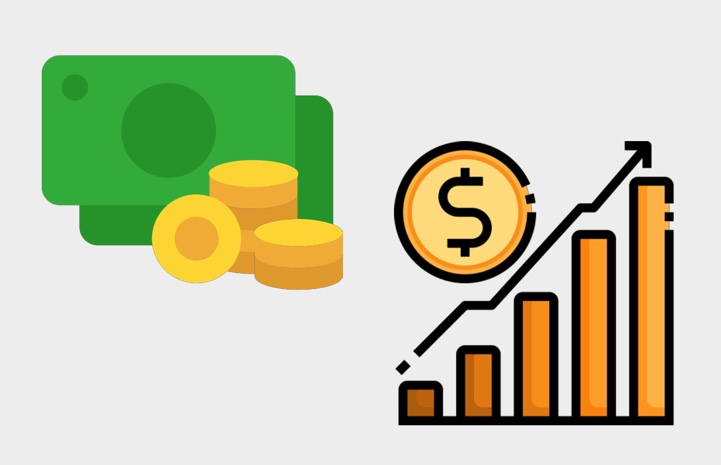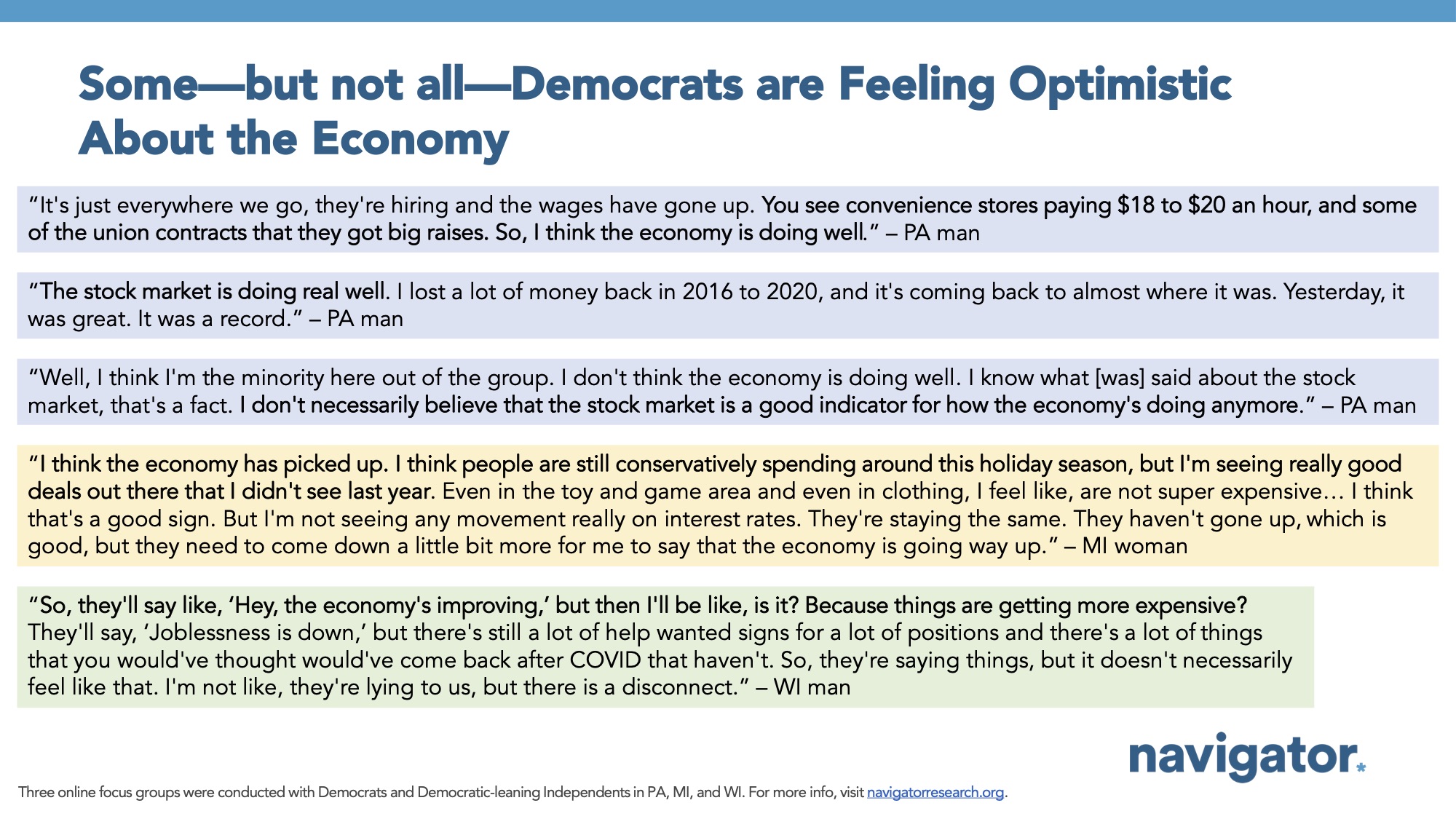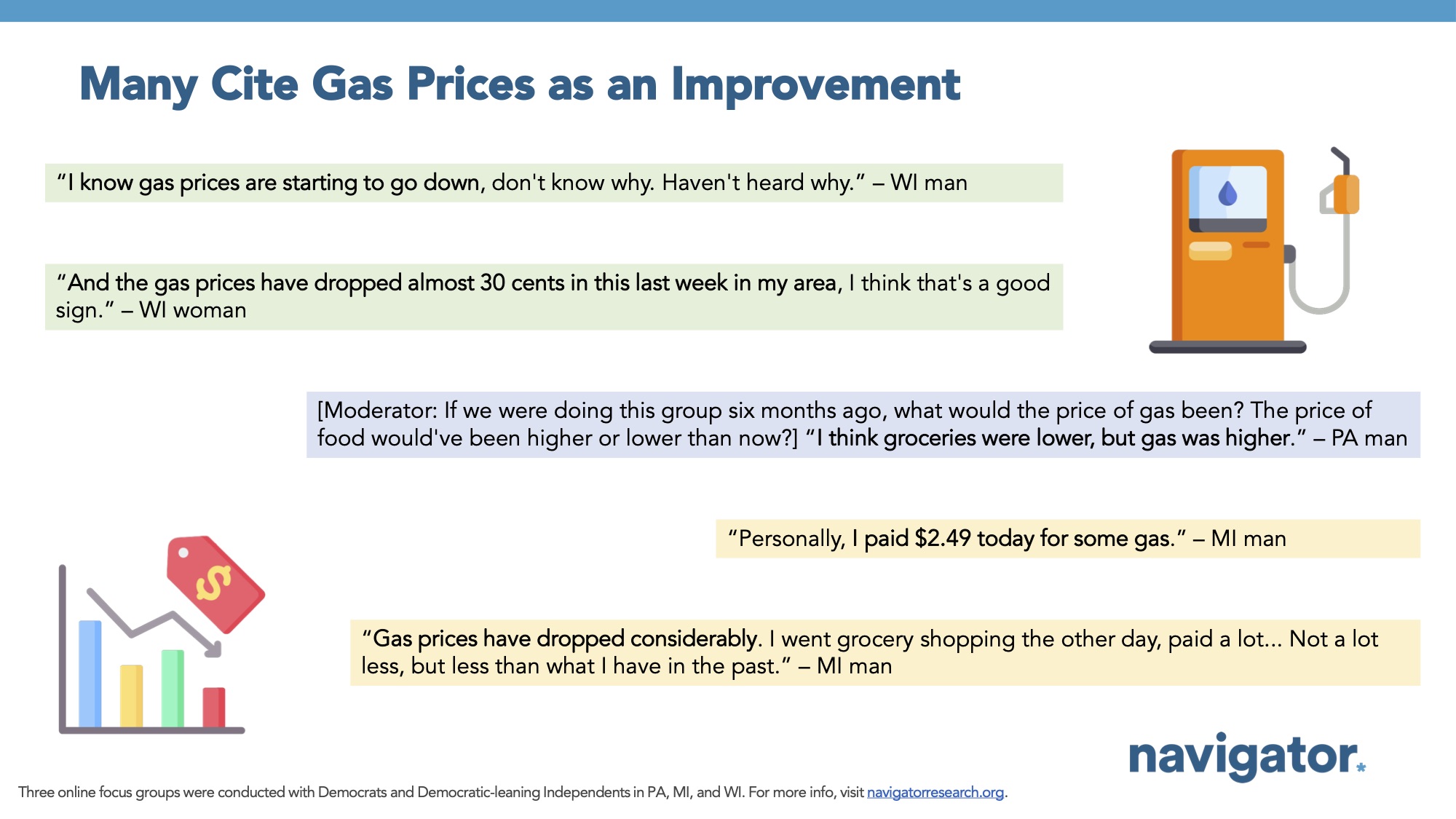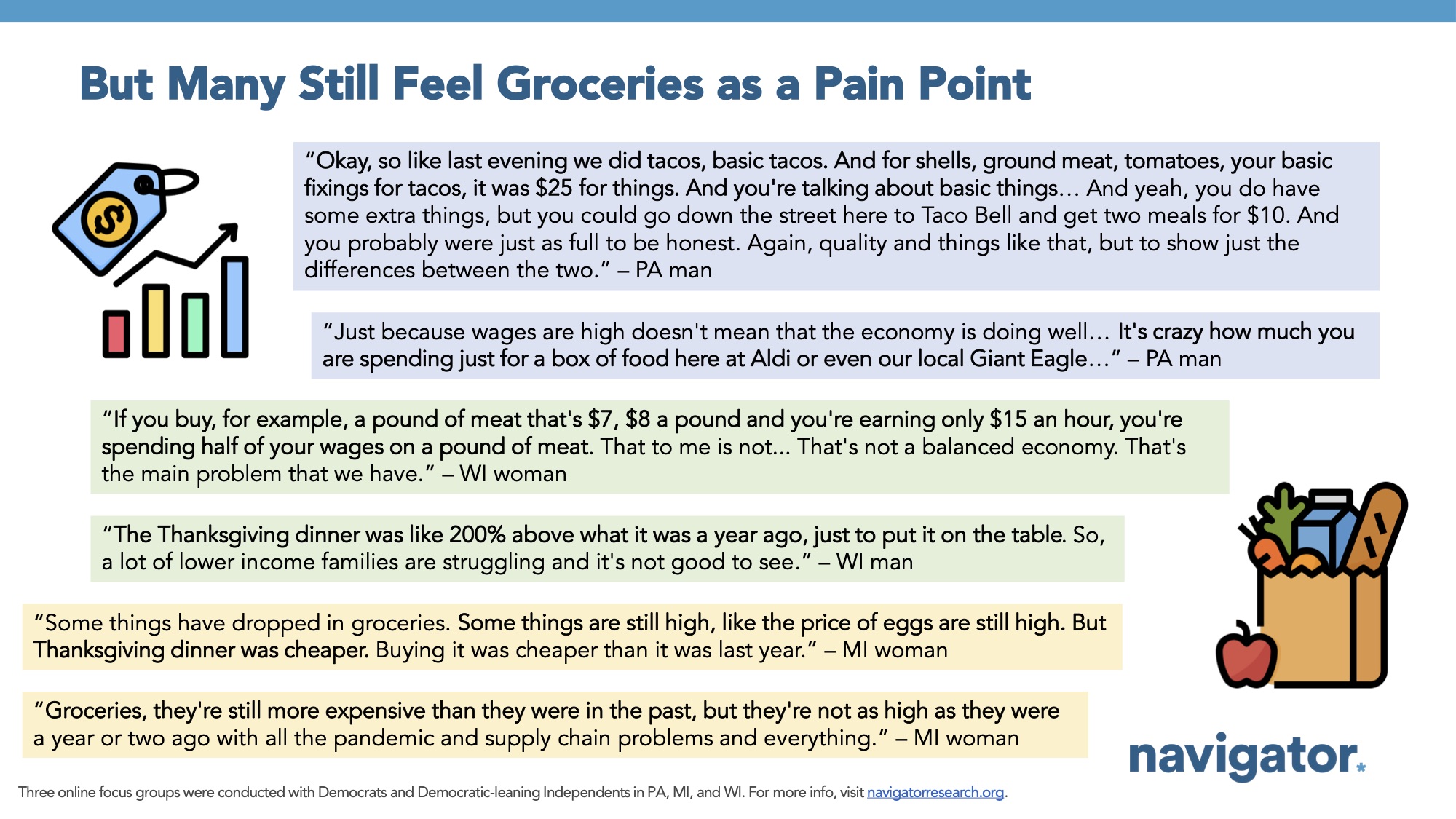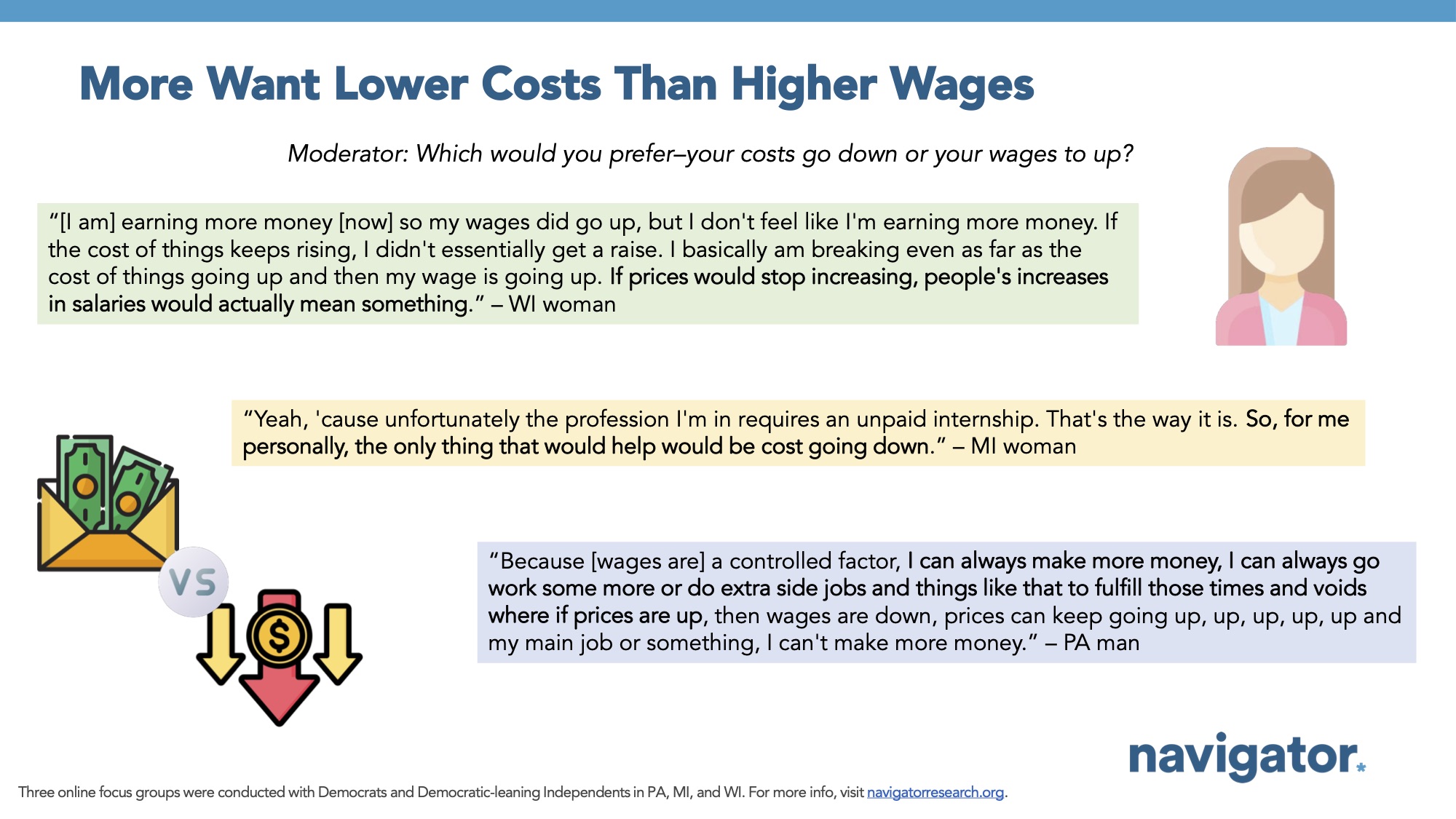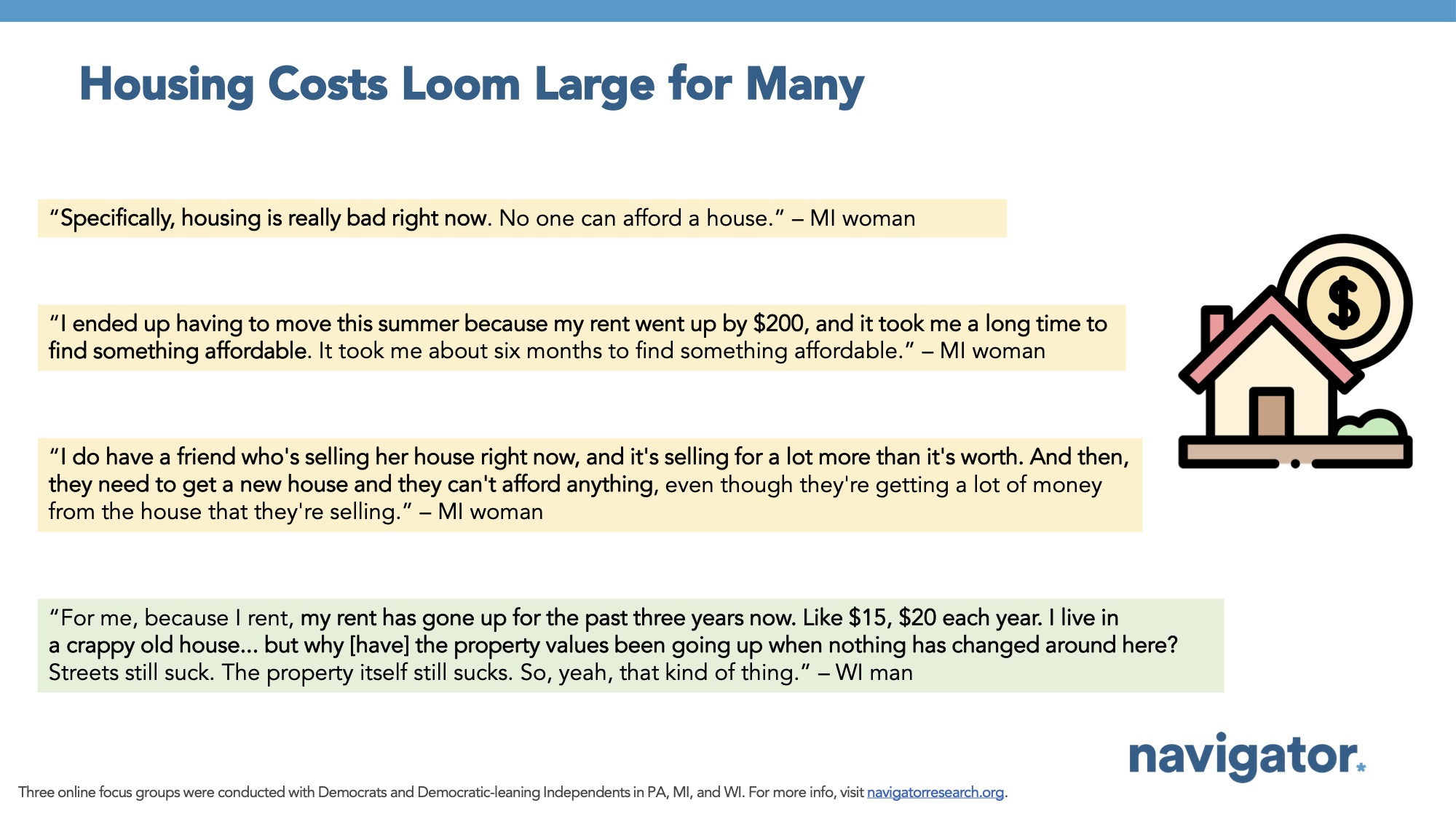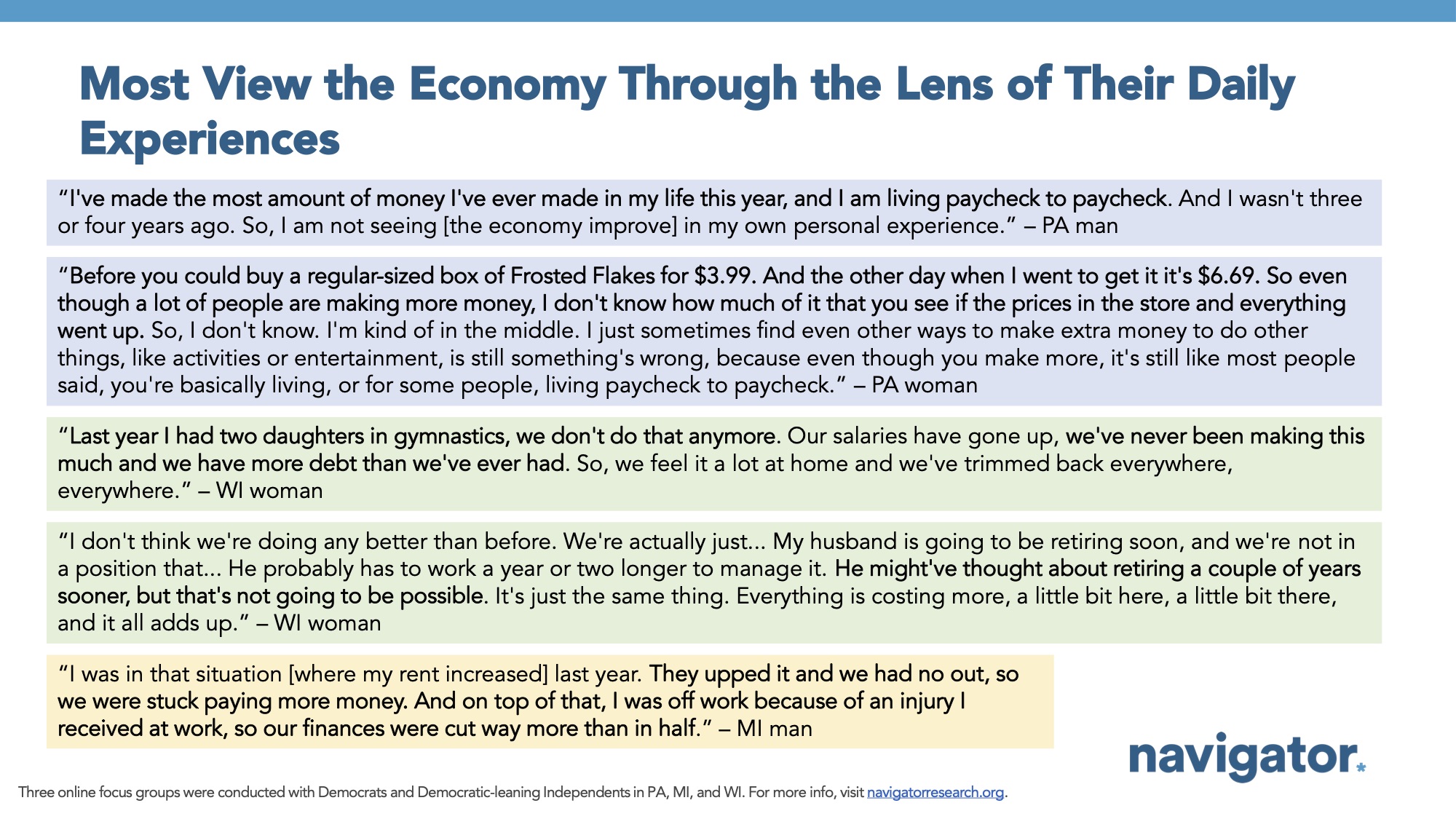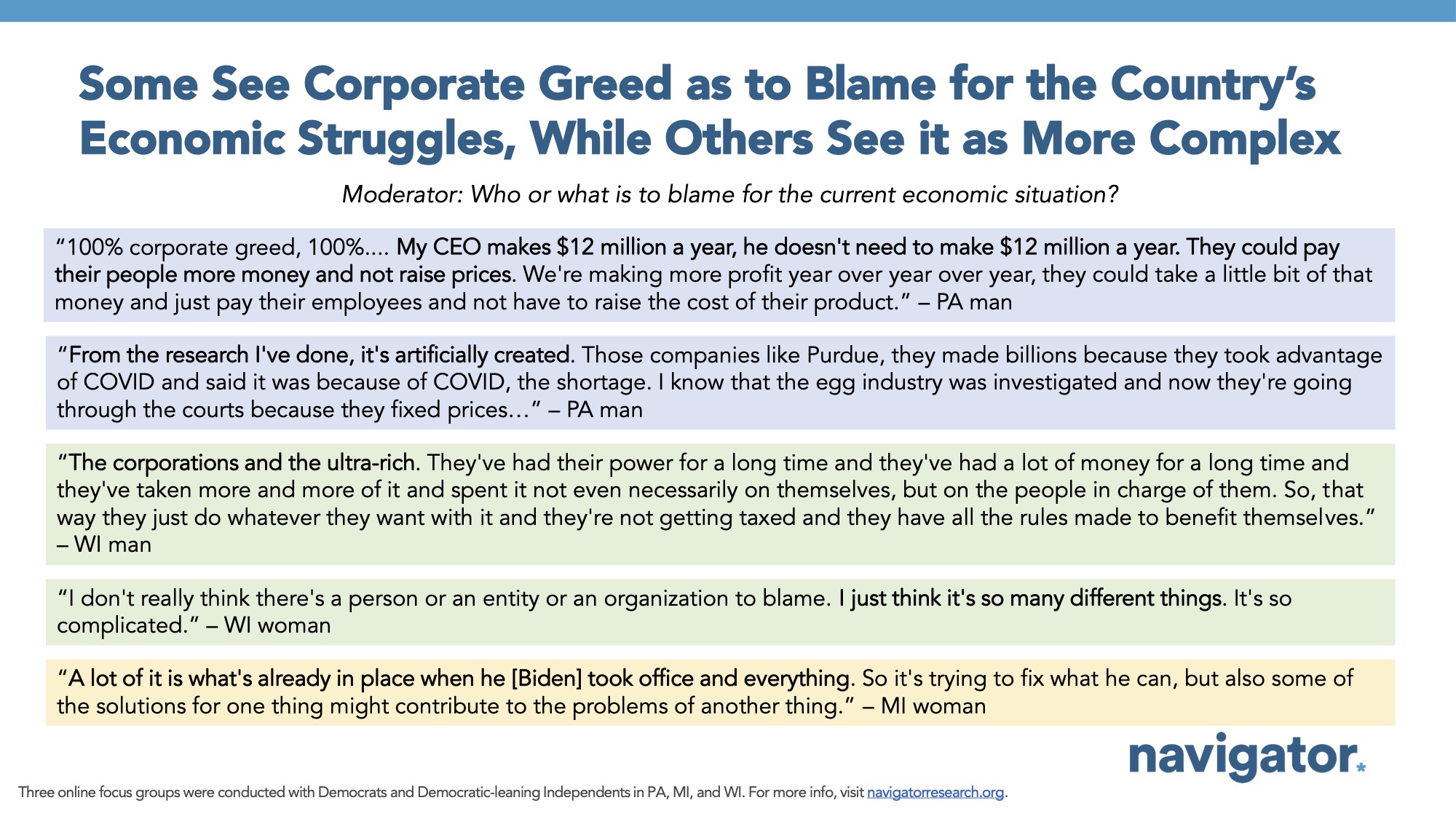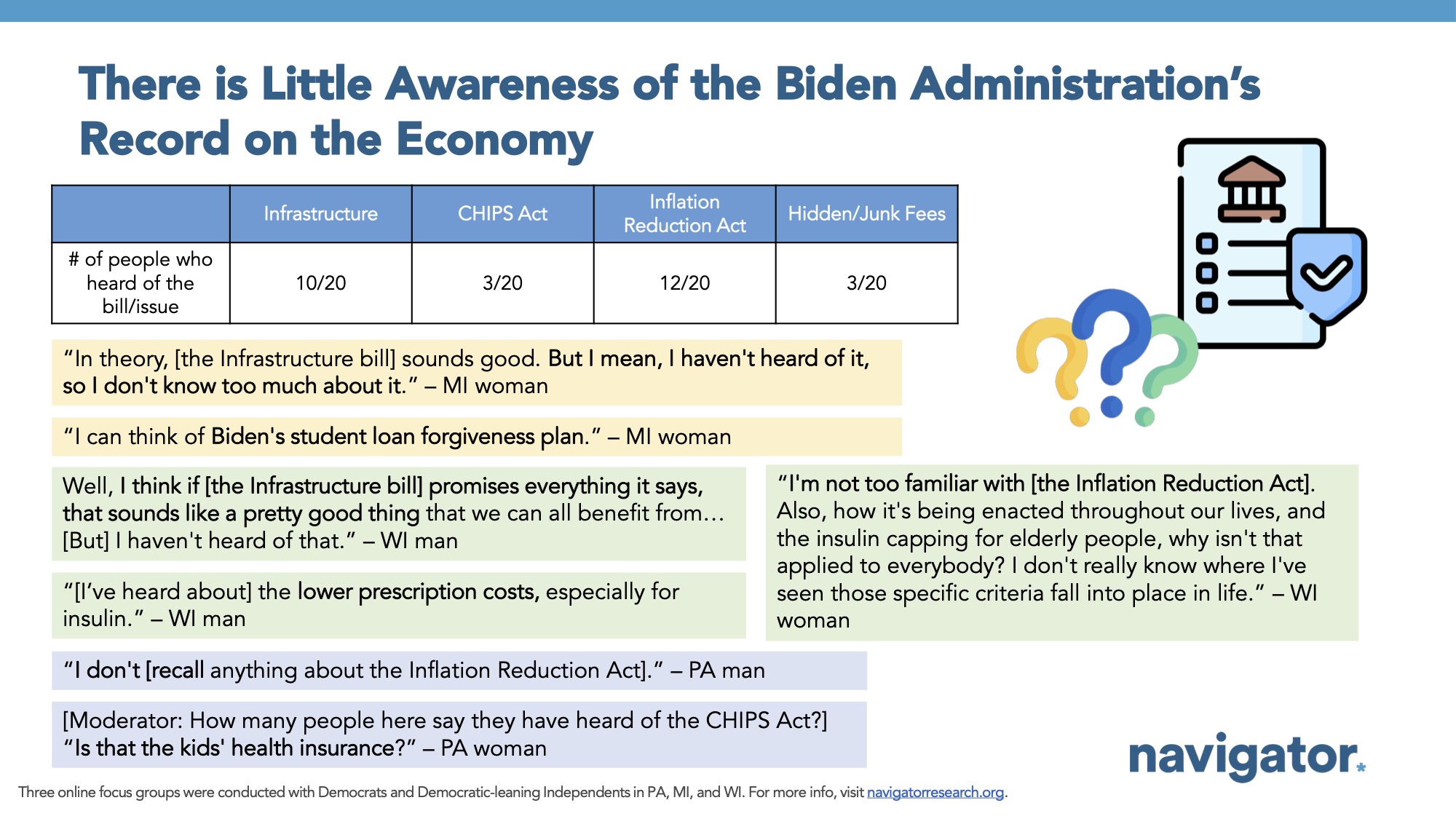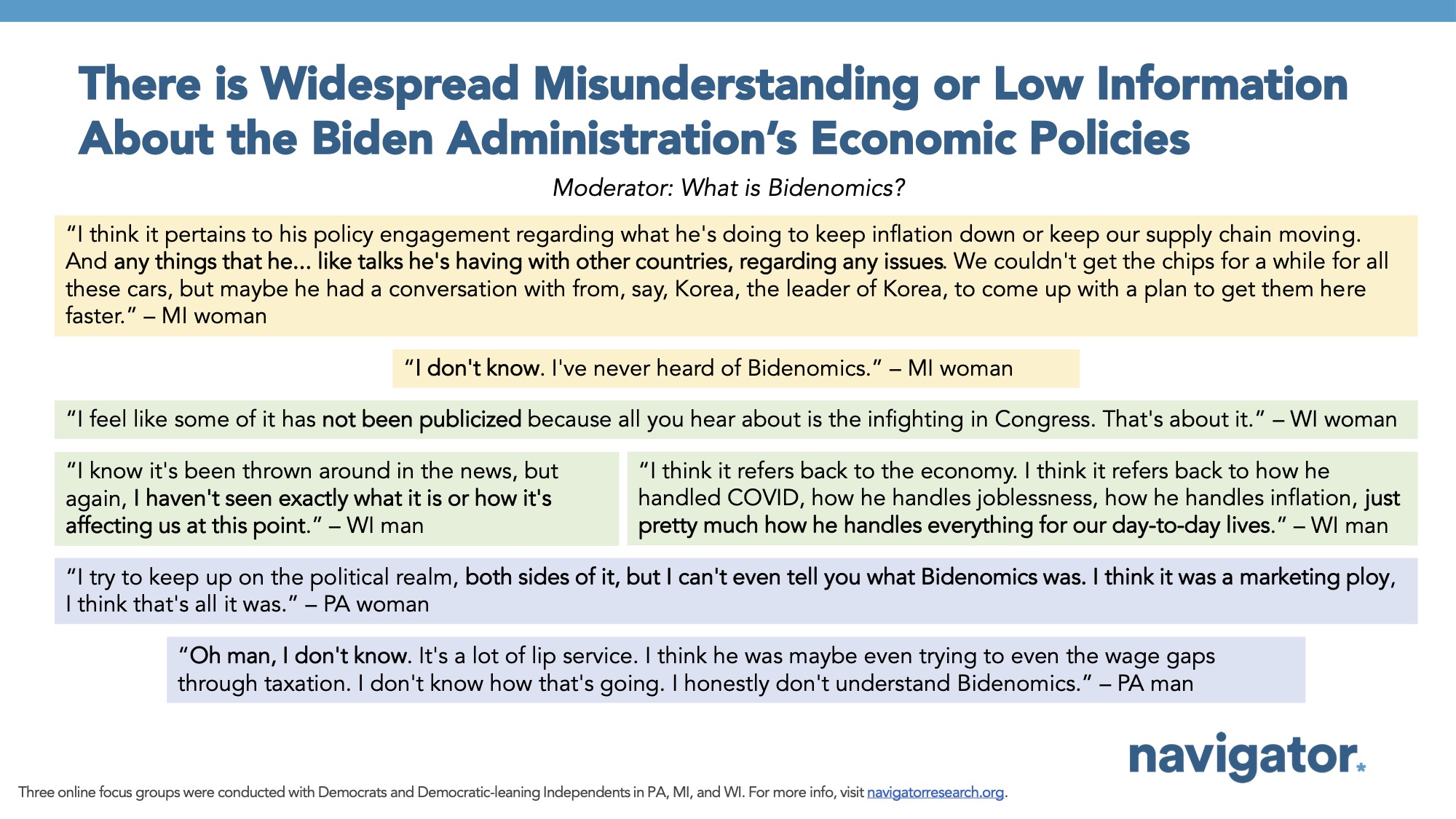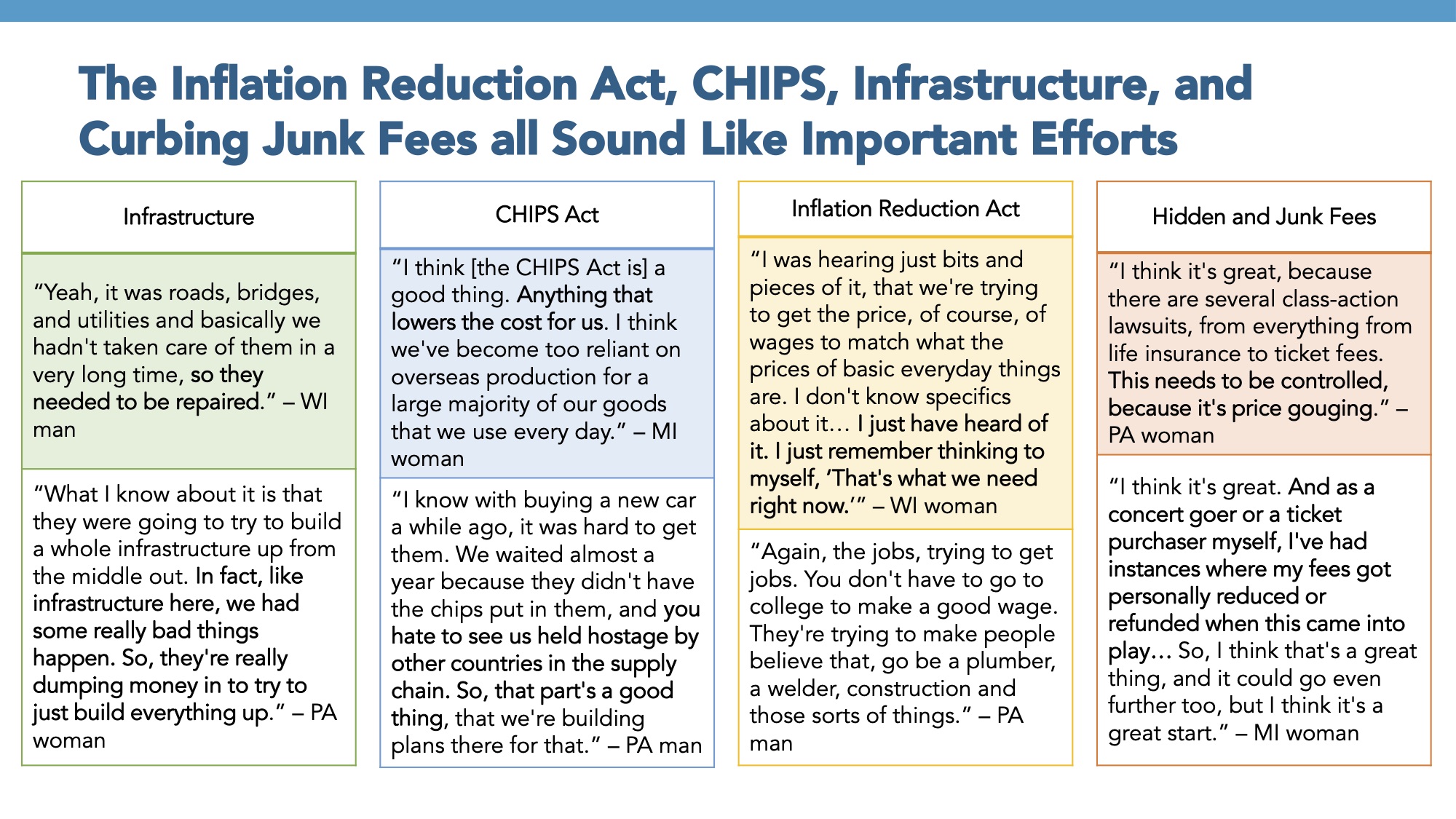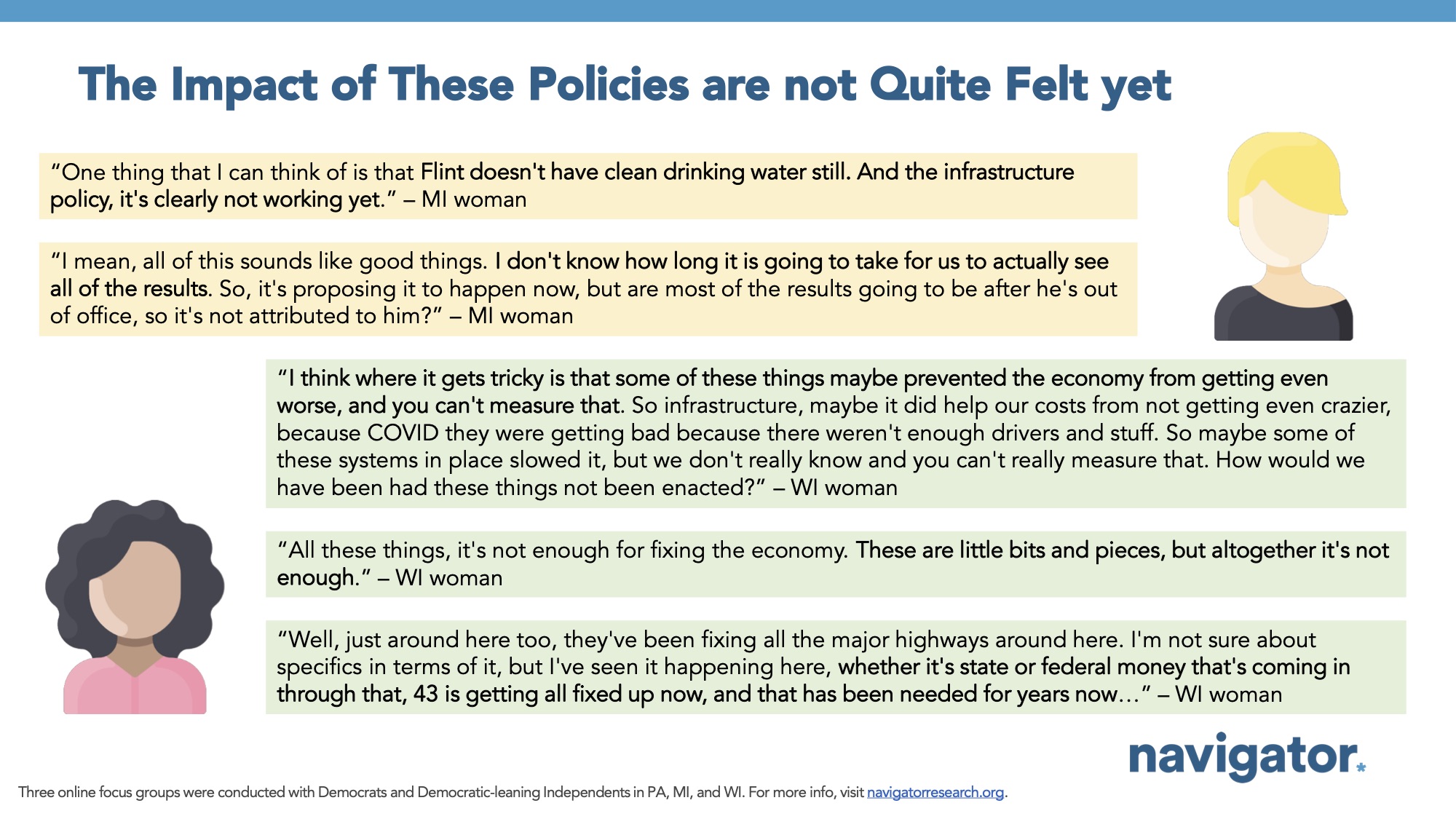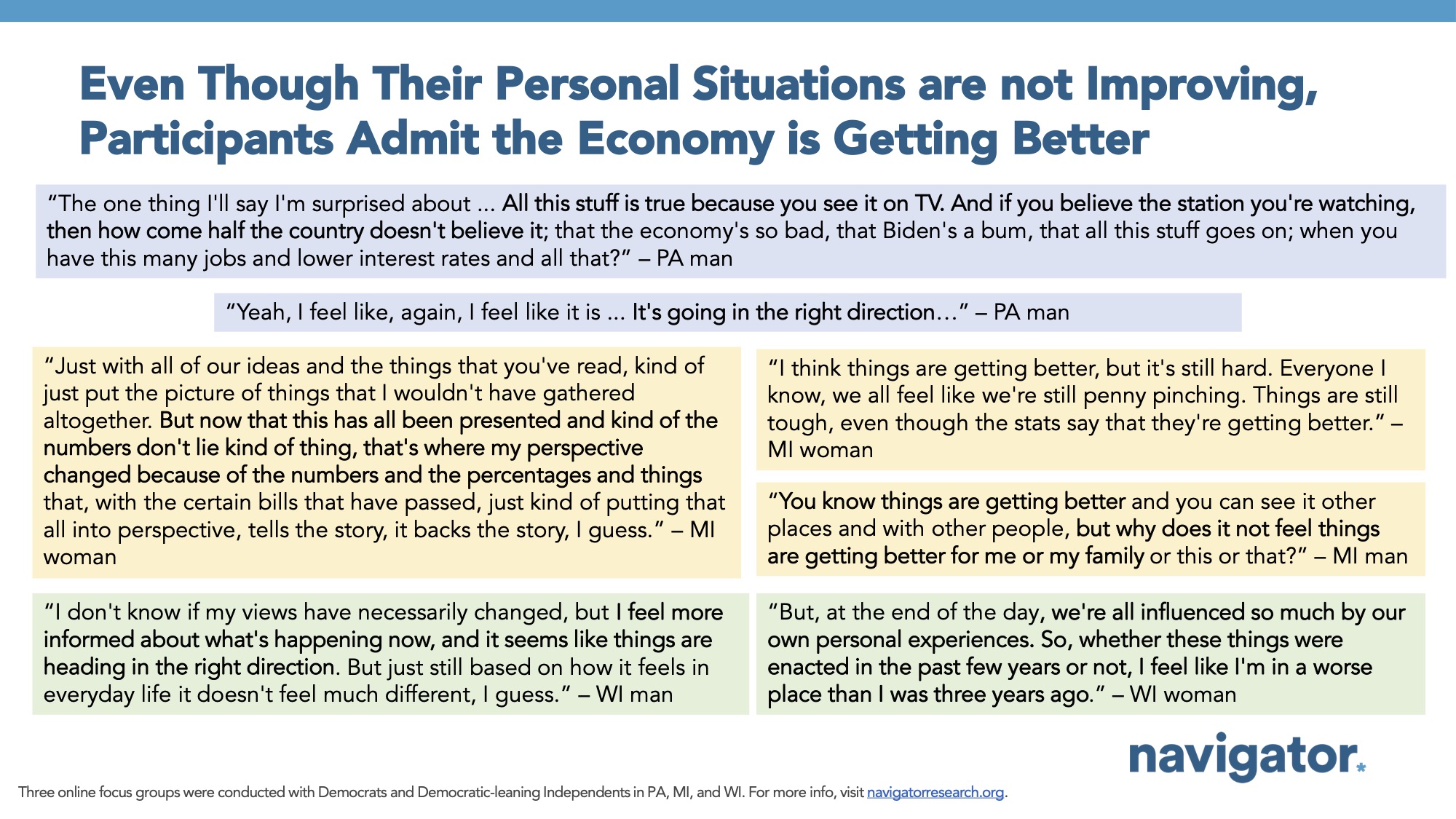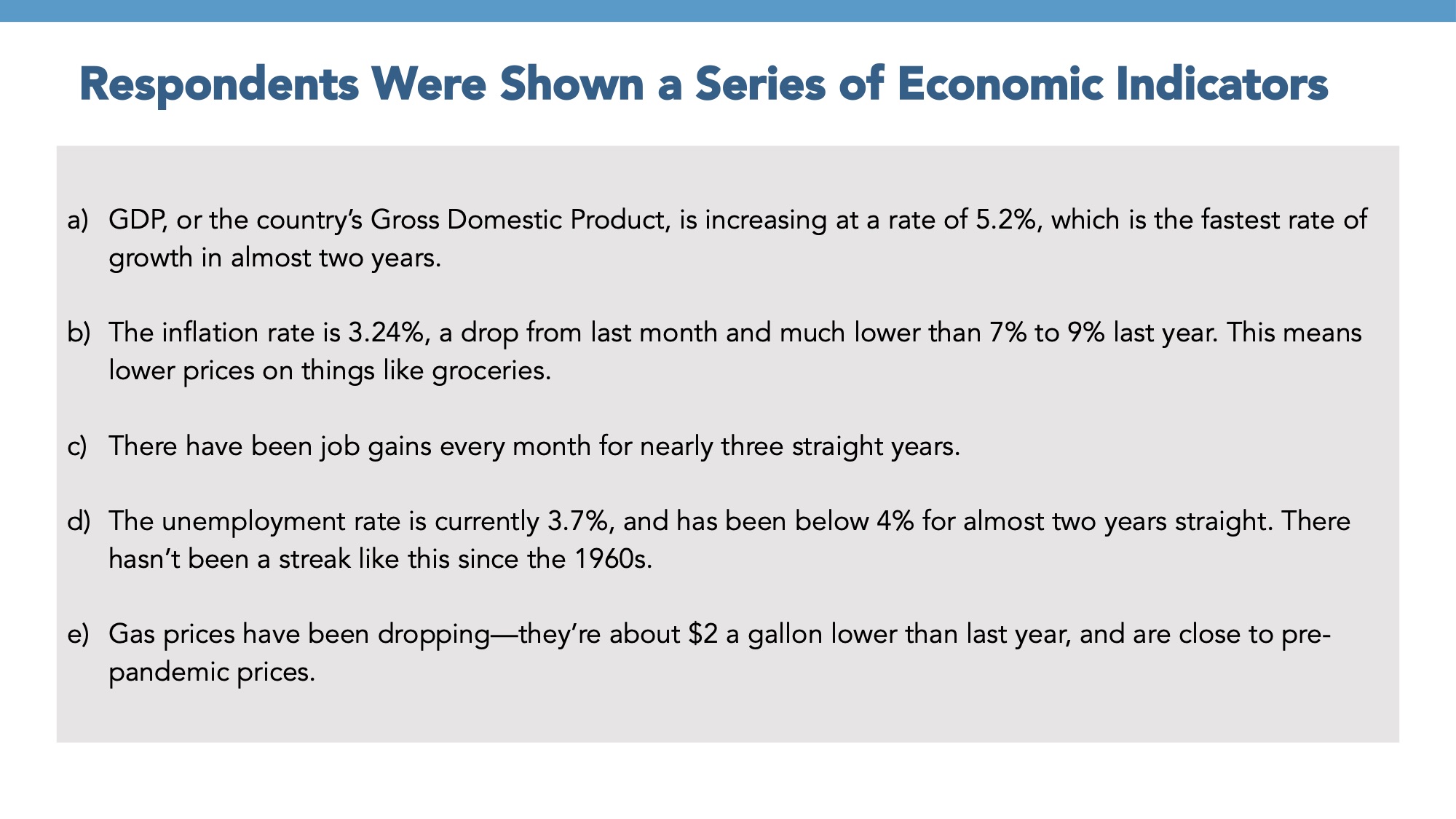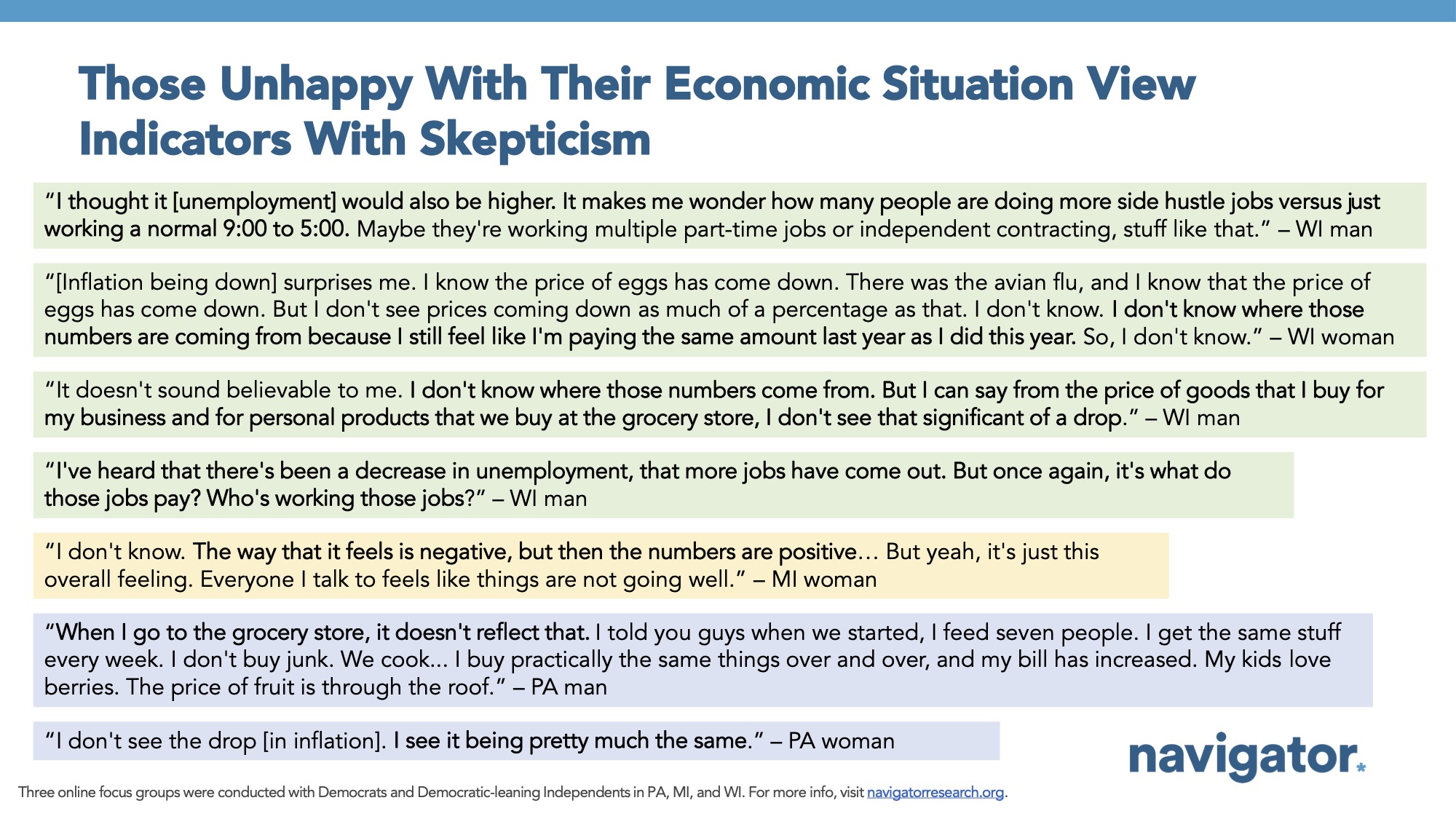Focus Groups: Democrats and Democratic-leaning Independents on the Economy
This Navigator Research report contains insights from focus groups conducted on December 14, 2023 to understand perceptions of the economy and progressive policy priorities. The groups were conducted among participants with varied views of President Biden in Pennsylvania (very favorable), Michigan (somewhat favorable), and Wisconsin (somewhat unfavorable) on their economic outlook, how “Bidenomics,” the Biden Administration’s legislative agenda, and progressive economic policies are perceived, and assessments of macro-economic indicators and their personal economic experiences.
Focus group participants are starting to identify some improvements in the U.S. economy.
When asked how the economy is doing, many participants indicated they believe it is improving, with one man in Pennsylvania noting the stock market’s improvement: “The stock market is doing real well. I lost a lot of money back in 2016 to 2020, and it’s coming back to almost where it was. Yesterday, it was great. It was a record.” A Michigan woman said: “I think the economy has picked up. I think people are still conservatively spending around this holiday season, but I’m seeing really good deals out there that I didn’t see last year.” Another man from Pennsylvania noted higher wages and hiring: “It’s just everywhere we go, they’re hiring and the wages have gone up. You see convenience stores paying $18 to $20 an hour, and some of the union contracts that they got big raises. So I think the economy is doing well.”
- However, macro-economic indicators like the stock market and employment rates don’t represent everyone’s experience. As one Pennsylvania man said: “Well, I think I’m the minority here out of the group. I don’t think the economy is doing well. I know what [was] said about the stock market, that’s a fact. I don’t necessarily believe that the stock market is a good indicator for how the economy’s doing anymore.” A Wisconsin man also noted the disconnect in economic sentiment and indicators, saying: “So they’ll say like, ‘Hey, the economy’s improving,’ but then I’ll be like, is it? Because things are getting more expensive? They’ll say, ‘Joblessness is down,’ but there’s still a lot of help wanted signs for a lot of positions and there’s a lot of things that you would’ve thought would’ve come back after COVID that haven’t. So they’re saying things but it doesn’t necessarily feel like that. I’m not like, they’re lying to us, but there is a disconnect.”
Most participants view the economy through their own daily experiences, with groceries consistently arising as an acute pain point.
Many participants noted their struggle to keep up with rising prices even as many acknowledge making more money than in the past, including one Wisconsin woman who said: “Last year I had two daughters in gymnastics, we don’t do that anymore. Our salaries have gone up, we’ve never been making this much and we have more debt than we’ve ever had. So we feel it a lot at home and we’ve trimmed back everywhere, everywhere.” A Pennsylvania man similarly noted: “I’ve made the most amount of money I’ve ever made in my life this year, and I am living paycheck to paycheck. And I wasn’t three or four years ago. So I am not seeing that in my own personal experience.”
- Participants consistently pointed to higher costs canceling out the gains from increases in wages, leading most to say they would prefer a focus on lowering costs. As a Wisconsin woman stated: “[I am] earning more money [now] so my wages did go up, but I don’t feel like I’m earning more money. If the cost of things keeps rising, I didn’t essentially get a raise. I basically am breaking even as far as the cost of things going up and then my wage is going up. If prices would stop increasing, people’s increases in salaries would actually mean something.”
- Many participants cited the recent decline of gas prices as a huge improvement in their personal economic experiences, with one Wisconsin man saying: “I know gas prices are starting to go down, don’t know why. Haven’t heard why.” Another woman in Wisconsin also said: “And the gas prices have dropped almost 30 cents this last week in my area. I think that’s a good sign.”
- However, many still feel they are paying substantially more for groceries. As one Wisconsin man said: “The Thanksgiving dinner was like 200% above what it was a year ago, just to put it on the table. So a lot of lower income families are struggling and it’s not good to see.” Others remarked on housing costs and interest rates, with one Michigan woman saying: “I ended up having to move this summer because my rent went up by $200, and it took me a long time to find something affordable. It took me about six months to find something affordable.”
Corporate greed is frequently cited as to blame for economic woes.
A Pennsylvania man noted “100% corporate greed, 100%…. My CEO makes $12 million a year, he doesn’t need to make $12 million a year. They could pay their people more money and not raise prices. We’re making more profit year over year over year, they could take a little bit of that money and just pay their employees and not have to raise the cost of their product.” A Wisconsin man echoed this, believing it was due to “…the corporations and the ultra-rich. They’ve had their power for a long time and they’ve had a lot of money for a long time and they’ve taken more and more of it and spent it not even necessarily on themselves, but on the people in charge of them.”
- When asked who or what is to blame for prices going up, some believed it is more complex and due to a variety of different factors. One Wisconsin woman said: “I don’t really think there’s a person or an entity or an organization to blame. I just think it’s so many different things. It’s so complicated.” Another Michigan woman said: “A lot of it is what’s already in place when he [Biden] took office and everything. So it’s trying to fix what he can, but also some of the solutions for one thing might contribute to the problems of another thing.”
Participants have little awareness of the Biden Administration’s impact on their economic well-being, but work the administration has done is received well.
Participants were largely unaware of the policies enacted by the Biden administration, with one Pennsylvania man noting: “I don’t [recall anything about the Inflation Reduction Act].” When asked about the term “Bidenomics,” there is little information among participants. A Pennsylvania woman noted: “I try to keep up on the political realm, both sides of it, but I can’t even tell you what Bidenomics was. I think it was a marketing ploy, I think that’s all it was.” A Wisconsin man defined it as: “I think it refers back to the economy. I think it refers back to how he handled COVID, how he handles joblessness, how he handles inflation, just pretty much how he handles everything for our day-to-day lives.”
- When detailed, policies like the Inflation Reduction Act, Bipartisan Infrastructure Law, the CHIPS and Science Act, and efforts to curb junk fees are all viewed favorably, including one Michigan woman who said: “I think [the CHIPS Act is] a good thing. Anything that lowers the cost for us. I think we’ve become too reliant on overseas production for a large majority of our goods that we use every day.” A Pennsylvania woman commented on the infrastructure efforts: “What I know about it is that they were going to try to build a whole infrastructure up from the middle out. In fact, like infrastructure here, we had some really bad things happen. So, they’re really dumping money in to try to just build everything up.”
- However, the impacts of enacted legislation are not yet felt. As a Michigan woman noted: “One thing that I can think of is that Flint doesn’t have clean drinking water still. And the infrastructure policy, it’s clearly not working yet.” Another Michigan woman stated: “I mean, all of this sounds like good things. I don’t know how long it is going to take for us to actually see all of the results.” One woman in Wisconsin said: “Well, just around here too, they’ve been fixing all the major highways around here. I’m not sure about [the] specifics in terms of it, but I’ve seen it happening here, whether it’s state or federal money that’s coming in through that, 43 is getting all fixed up now, and that has been needed for years now, so…”
Following a discussion about economic indicators, participants believe the economy is getting better.
After reviewing a list of economic indicators detailing improvements in the economy, a Michigan woman stated: “I think things are getting better, but it’s still hard. Everyone I know, we all feel like we’re still penny pinching. Things are still tough, even though the stats say that they’re getting better.” A Pennsylvania man noted: “the one thing I’ll say I’m surprised about … All this stuff is true because you see it on TV. And if you believe the station you’re watching, then how come half the country doesn’t believe it; that the economy’s so bad… , that all this stuff goes on; when you have this many jobs and lower interest rates and all that?”
- Some participants however view economic indicators with skepticism, as they are not reflective of their own experience. As a Pennsylvania man said: “When I go to the grocery store, it doesn’t reflect that. I told you guys when we started, I feed seven people. I get the same stuff every week. I don’t buy junk. We cook… I buy practically the same things over and over, and my bill has increased. My kids love berries. The price of fruit is through the roof.” A Wisconsin woman similarly noted: “[Inflation being down] surprises me. I know the price of eggs has come down. There was the avian flu, and I know that the price of eggs has come down. But I don’t see prices coming down as much of a percentage as that. I don’t know. I don’t know where those numbers are coming from because I still feel like I’m paying the same amount last year as I did this year. So I don’t know.”
